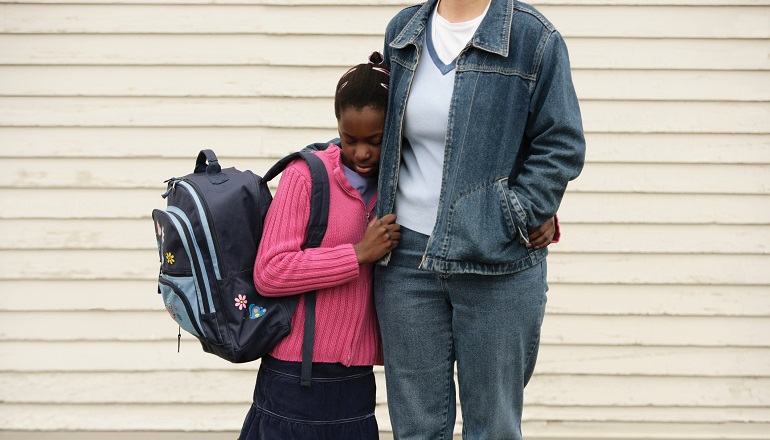By the age of six, most children begin to understand the finality of death. But the first time death strikes close to home, children will need help in learning to grieve.
When parents lead the way, they signal their readiness to support grief. Without support, children will avoid overwhelming emotions. They depend on parents to contain their feelings and provide comfort and security.
Including children in rituals surrounding the loss of a loved one helps them learn about death. They can paste photos on a poster board in memory of a relative. They can stand at the gravesite, holding a parent’s hand. “I’m going to miss Grandma so much,” a parent can say. “But I’ll always remember her in my heart.” In this way, a child learns that he can hold part of the lost person’s identity in memory.
Children do not grieve continuously, as adults do. Happy days may alternate with sad or irritable ones. Parents can respond by asking what is wrong. A grieving child may surprise themselves by bursting into tears.
The Grieving Period
Most children need support for a couple of weeks when grieving for a beloved dog or cat. These are times when a parent can help a child who has questions like, “Is my kitty in heaven?”
The death of a close friend or relative requires much greater attention, and grieving can last for months. This is not the age for vague musings on the uncertainties of life. Children are looking for concrete answers to questions they’re almost afraid to ask. A parent might say, “If you had that disease, the doctor would have seen it in your last checkup.”
After children are assured of their own longevity, they often want to make certain their parents are healthy. At such a time, it wouldn’t hurt for parents to brag about their strong constitutions.
When grieving, adopted children may be reminded of the loss of their birth parents. Often they are angry when they think of this. Telling children how happy you are about adopting them does not help, although this is certainly important. Encouraging them to express concerns and feelings in an atmosphere of comfort and love helps them move from loss to acceptance.
As children complete the grieving process, they show a boost of energy and renewed interests. Reminiscing becomes a pleasurable way to hold on to the loved person’s memory.

